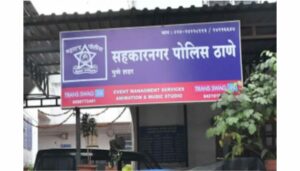Government conducting ‘Time Use Survey’ to know unpaid economic activities of people, particularly women
Lucknow, July 13, 2019 : A two days’ National Seminar Cum Workshop on “Statistics and Sustainable Development Goals” was inaugurated by Pravin Srivastava, Chief Statistician of India and Secretary, Ministry of Statistics & Programme Implementation (MoSPI), Government of India inaugurated ” at the Malviya Auditorium, University of Lucknow today. Prof. S.P. Singh, Vice Chancellor, University of Lucknow presided over the inaugural function. Smt. Shailja Sharma, Additional DG, Social Statistics Division, NSO, MoSPI, Prof. Raj Kumar Singh, Pro Vice Chancellor, Dr. Savita Bhatt, Director Medical Care, UP, Prof. Sheela Misra, Head, Department of Statistics, University of Lucknow and other dignitaries were present on the occasion.
Addressing the gathering on the occasion, Secretary, MoSPI & CSI, highlighted the significance of Sustainable Development Goals for a peaceful, prosperous and sustainable world. He informed that for effective monitoring of SDGs, the responsibility of developing the National Indicator Framework, and coordination with various ministries and other stakeholders, has been entrusted to the Ministry of Statistics & Programme Implementation. He told that a set of 306 National Indicators have been finalised in NIF with identified data sources and periodicity after consultations with Central Ministries, State Governments and other stakeholders.
He said that India’s national development agenda is mirrored in the SDGs. He emphasized the importance of the role of academic institutions for achieving the SDGs.
Shri Srivastava informed about the NSO’s efforts, made in the recent past, to bridge the data gaps in official statistics for informed policy making. He told that for the first time, in 7th Economic Census, an IT based digital platform for data capture, validation, report generation and dissemination is being used. Economic Census is the complete count of all establishments located within the geographical boundary of India. It provides valuable insight into geographical spread of economic activities, ownership patterns, persons engaged etc. of all economic establishments in the country.
He told that for the first time, NSO has commissioned a ‘Time Use Survey’, which will provide important insights about the time disposition and the unpaid economic activities of the people, particularly women. The need of the Time Use Survey was being felt for a long time. The survey is presently on and will be over by December, 2019.
Dwelling on the huge contribution made by unincorporated enterprises in the GDP of India, he told that National Statistical Office is going to start an “Annual Survey of Unincorporated Sector Enterprises” (ASUSE) from 1st of October, 2019. This survey will provide vital information on economic and operational characteristics of unincorporated non-agricultural establishments in manufacturing, trade and other services sector, including employment.
Secretary, MOSPI informed that in order to plug the data gaps in service sector, NSO is going to undertake an “Annual Survey of Service Sector Enterprises” on regular basis from 1st January, 2020. Service sector contributes nearly 54% to India’s GDP.
Speaking on the occasion, Vice Chancellor of University of Lucknow, Professor S.P. Singh told that researchers and academicians would play a great role in achievement of sustainable development goals and its targets by 2030. They will continue significantly from time to time developing socio-economic indicators which would help the Government in policy formulation in various sectors.
Guest of Honour Prof. Padam Singh, well known names amongst policy makers and researchers spoke about Redefining “Poverty line” .
Prof. A K Saxena the guest of honour and former Head Department of Statistics expressed his delight and blessed the event with his motivating and inspiring words for keeping these efforts continued.
The event saw enthusiastic participation from academia, Government, NGOs and social Groups who would be having a very sincere and thoughtful deliberations and discussions over the two days in various technical sessions special lectures, invited lectures, contributory papers having more than 75 technical papers.








